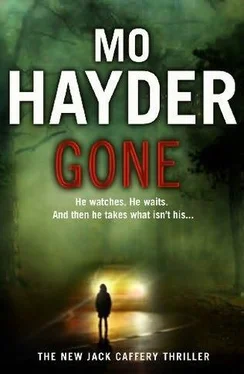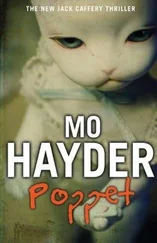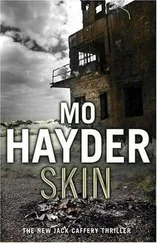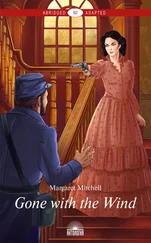‘Where’d you get the file?’
‘The review team had it. Thought I’d give it a quick flick through.’
‘Thought you’d “give it a quick flick through”?’
Prody stopped looking at the map and raised his eyes to Caffery. ‘Yes. Just – you know, see if anything jumped out at me.’
‘Why?’
‘Why?’ He said it cautiously, as if it was a trick question, as if Caffery had asked him something obvious, like Hey, Paul, why do you breathe in and out? ‘Well – because it’s fascinating? What happened to her? I mean a girl in the drying-out bin for a couple of days wanders out of the clinic one afternoon, and next you know, ta-da , she’s gone. It’s just . . .’ He shrugged. Faintly embarrassed. ‘Interesting.’
Caffery looked him up and down. Six months ago the Misty Kitson case had been a serious headache for the unit. At first there’d been a kind of excitement about it. She’d been a minor celebrity, a footballer’s wife and very pretty. The media had fallen on it like hyenas. That had excited a lot of the cops in the team. But when, after three months, the unit had consistently come back empty-handed, the lustre began to tarnish. Humiliation had set in. Now the case had been back-burnered. The review team still had it, and they still chastised and sent periodic recommendations to MCIU over it. The press were still interested too, not to mention the occasional starstruck cop. But most of MCIU would have liked to forget they’d ever heard the name Misty Kitson. Caffery was surprised at this – Prody going to the review team off his own bat. Writing his own ticket like he’d been around the place for years and not just two weeks.
‘Let’s get this straight, Paul.’ He picked up the file and felt its weight testing the bones in his fingers, trying to pull his hand down. ‘You only still want to know what happened to Misty Kitson if you’re in the media. Now, you’re not in the media, are you?’
‘I’m sorry?’
‘I said, you’re not in the media, are you?’
‘No. I mean, I’m a—’
‘You’re a cop. Your official stance might be “We’re still pursuing lines of enquiry,” but the truth in here,’ he tapped his temple, ‘is you’ve moved on. The unit’s screwed the lid on the Kitson case. It’s over. Finished.’
‘But—’
‘But what?’
‘Be honest. Aren’t you intrigued?’
Caffery didn’t need to be intrigued. He knew exactly where Misty Kitson was. He even knew roughly the route she’d taken out of the clinic’s grounds because he’d walked it himself. He knew who had killed her too. And how. ‘No,’ he said levelly. ‘Of course I’m not.’
‘Not in the slightest?’
‘Not in the slightest. I’m fighting one serious fire here with the jacker case. And I need all hands on deck. I don’t need my men wandering into the review team and “having a flick through” old cases. Now.’ He dropped the file on Prody’s desk. ‘Do you want to take it back or shall I?’
Prody was silent, looking at the file. There was a long pause, and Caffery sensed him struggling not to argue. In the end he swallowed it. ‘Yeah, whatever. I’ll do it.’
‘Good.’
Caffery left the office, feeling irritated and jangled. He closed the door softly, not giving in to the urge to slam it. Turner was standing outside his room, waiting for Caffery as he came down the corridor. ‘Boss?’ He was holding a piece of paper in one hand.
Caffery stopped in his tracks, gave him a long look. ‘From your face, Turner, I’d say I’m not going to like what you’re going to tell me.’
‘Probably not.’
He held out the paper. Caffery closed his thumb and forefinger on it. But something stopped him taking it from Turner’s hand. ‘Tell me.’
‘We got a call from boys in Wiltshire. They found the Bradleys’ Yaris.’
Caffery’s grip on the paper tightened. Still he didn’t pull. ‘Where?’
‘On some disused farmland.’
‘And Martha’s not in it. Is she?’
Turner didn’t answer.
‘If she’s not in it,’ Caffery’s voice was calm, ‘it doesn’t mean she won’t still turn up.’
Turner coughed, embarrassed. ‘Uh – read it first, Boss. Wiltshire faxed it over. They’re getting their own SOCOs to drive the original down to us personally.’
‘What is it?’
‘A letter. It was on the dashboard, rolled up inside some of her clothing.’
‘What clothing?’
‘Uh.’ He gave a long sigh.
‘What?’
‘Her underwear, Boss.’
Caffery stared at the paper. His fingers were burning. ‘And what does it say?’
‘Oh, Christ. Like I said, Boss, maybe you should read it.’
The man crouched at the edge of the camp, the fire lighting his filthy face and beard red, making him look like something born not of woman but of a volcano. Caffery sat a few feet away, watching him in silence. It had been dark for four hours already, but the man was busy planting a bulb in the frozen earth. ‘There was once a child,’ he said, trowelling the earth away. ‘A child called Crocus. Crocus was a girl child with golden hair. She loved to wear purple dresses and ribbons.’
Caffery listened in silence. In the short time he had known the vagrant, whom the locals called the Walking Man, he’d learned to listen and not to question. He’d learned that in this relationship he was the pupil and the Walking Man was the teacher – the one who chose most things about their encounters: what they talked about, where and when they met. It was six long months since they’d last sat together, but maybe the twentieth time Caffery had searched for him. Those hunts had been long lonely nights, driving lanes at five miles an hour, stretched up in the driver’s seat, craning his neck to see over the hedgerows. Tonight, almost the moment he’d begun looking, the campfire had sprung up like a beacon in a field. As if the Walking Man had been there all along, watching Caffery’s efforts with amusement. Waiting for the time to be right.
‘One day,’ the Walking Man continued, ‘Crocus was taken by a witch and condemned to live trapped among the clouds where her parents could neither speak to her nor see her. They still don’t know for sure if she’s alive, but every spring, on her birthday, they turn their eyes to the sky and pray that this spring will be the one their child is returned.’ He patted the ground around the bulb and dribbled some water on to it from a plastic bottle. ‘It is an act of faith, to continue to believe their daughter is still there. An act of absolute faith. Can you imagine what it must have been like for them never to know for sure what had happened to their daughter? Never to know for sure if she was dead or alive?’
‘Your daughter’s body was never found,’ Caffery said. ‘You know how they felt.’
‘And your brother’s wasn’t either. So that makes us twins.’ He smiled. The moonlight caught his teeth, which were even, clean and healthy in his blackened face. ‘Peas in a pod.’
Peas in a pod? Two men who couldn’t have been more different. The insomniac lonely cop and the bedraggled homeless guy, who walked all day and never slept in the same place twice. But it was true they shared things in common. They had the same eyes. Astonishingly when Caffery looked at the Walking Man he saw his own blue eyes staring back at him. And, more importantly, they shared a story. Caffery had been eight when his older brother Ewan had disappeared from the family’s back garden in London. The ageing paedophile Ivan Penderecki, who lived over the railway tracks, was to blame, Caffery had no doubt, but Penderecki had never been charged or convicted. The Walking Man’s daughter had been raped five times before she was murdered by an itinerant offender on probation, Craig Evans.
Читать дальше












